- Home/
- Clinical reasoning in neuromusculoskeletal disorders
Clinical reasoning in neuromusculoskeletal disorders
- ModalityIn-person
- LanguagesCatalan
- Duration2 sessions / 20 hours
- DateMay 6, 2023
- ShiftsFrom 9:00 a.m. to 2:00 p.m. and from 3:00 p.m. to 8:00 p.m.
- Planning
May 6 and 7, 2023
- Places25
- Location
Blanquerna-URL - Carrer Padilla, 326-332. 08025 Barcelona
- Faculty
Blanquerna School of Health Sciences
Critical reading on the current status of research in Physiotherapy shows that the Physiotherapy professional bases their reasoning on techniques and their applicability rather than on the clinical signs and symptoms that describe the patient's state of health.
Clinical reasoning in Physiotherapy is considered the fundamental tool to improve the effectiveness of the current treatments by connecting the most precise therapeutic goals based on diagnostic excellence with the indications, limitations and contraindications of classical and advanced therapies available in the professional market.
Objectives
Identifying and controlling by metacognition the most common cognitive biases that lead to the most common decision-making errors in clinical practice.
Identify the red flags and diagnostic clinical prediction rules available in the current literature.
Understanding the procedural logic of physiotherapeutic diagnosis in acute injury focused on pathology or dysfunction.
Course content
- The different types of clinical reasoning. Uses and limitations in clinical practice.
- What are cognitive biases and which ones do we have in our daily clinical practice?
- What strategies can we use metacognitively to control them.
- Case resolution based on the case method. Clinical Exemplification.
- Cervical pain and dysfunction based on the case method.
- Lower back pain based on the case method.
- Wrist and hand dysfunctions based on the case method.
- Foot and ankle dysfunctions based on the case method.
- Practical demonstration and tutelage of diagnostic ability in acute injury and chronicity.
- Case management in groups: Formulation of hypotheses, selection of exploratory tools, use of binding clinical reasoning and proposal or practical demonstration of the case resolution
- Sharing the case solution in the different stages through collaborative learning.
Tuition fee

Libraries
If you need a quiet space to study or to do individual and group work, come to the library! Each school has its own library with computers, workrooms, reading points and an extensive catalog of documents you can consult in both hard copy and digital format.
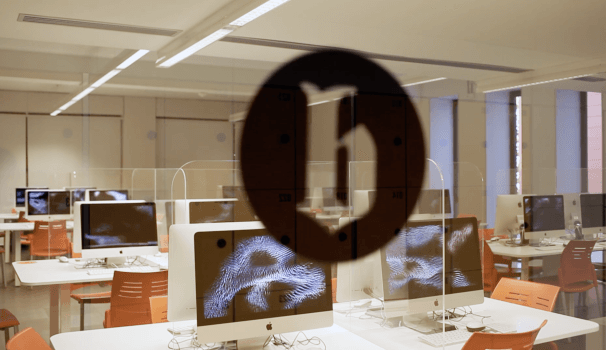
Computer rooms
If you have a job or just need a computer, you can go to the computer classrooms or workspaces and use the Macs we have at your disposal.
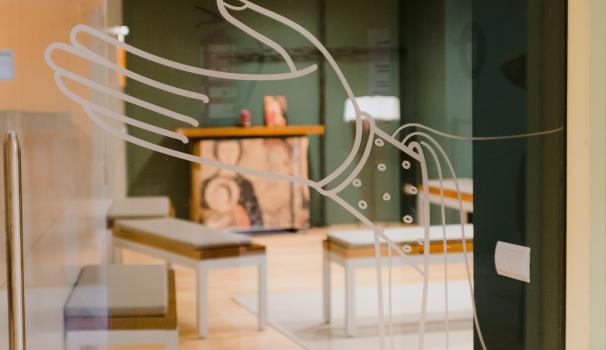
Chapel
The chapel is the right place to find recollection, peace, to focus, to pray and to celebrate the Eucharist weekly and at important liturgical moments (Christmas, Ash Wednesday and Easter). The sacrament of reconciliation is also celebrated.
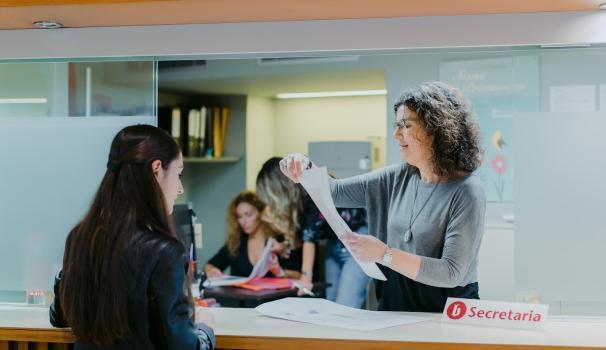
Academic Secretary
The Academic Secretaries of the Blanquerna faculties are the space for students to relate to the processes linked to the registration of official and own courses.

Student Information and Guidance Service (SIOE)
Would you like to receive information on pre-registration and admissions processes, scholarships and grants or validations? The SIOE is the service you need. Ask for all the information about any of these processes and discover all the possibilities at your fingertips.
Internship service
Professional experience is a core part of our methodology. For this reason, we have a broad spectrum of internship agreements to meet the needs and preferences of all students. You will graduate having worked in your industry.

Scholarships and grants service
At Blanquerna, we put the future within everyone's reach thanks to our scholarships and grant service to start or continue studying at our schools. Financial aid is both internal and external to the university. You will find a wide range of possibilities.

International Mobility Office
Going abroad is a unique opportunity to discover the plurality of the world. Aware of the importance of the internationalization of studies, we have established mobility agreements around the world.
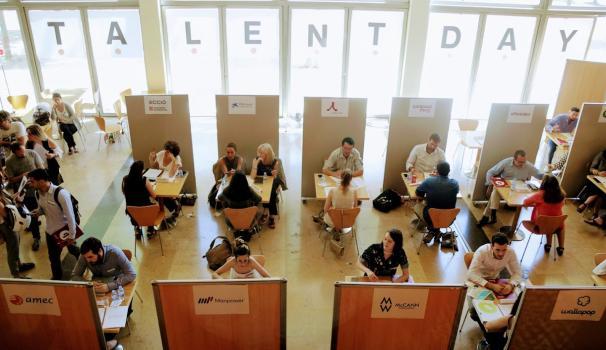
Careers
This service provides graduates with the necessary means so that they can actively participate in their professionalism and propose optimal candidates to organizations and companies looking for staff.

Job Bank
The leap into the world of work is always a challenge. For this reason, we provide a Job Bank for students and graduates. This service puts students in touch with companies and institutions looking for staff.
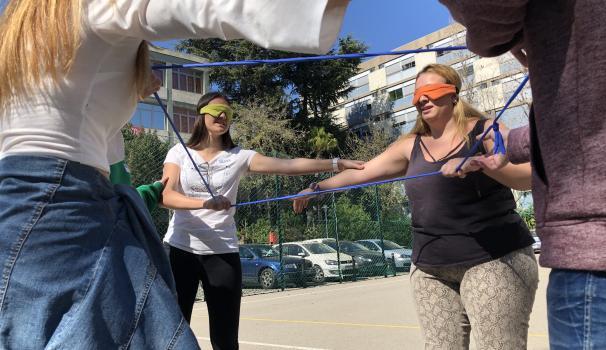
Solidarity action
Solidarity and the struggle for human dignity are values that identify us. Solidarity Action is a volunteer program that our students can join to participate in projects in the Third and Fourth World.

Alumni service
Studying in Blanquerna allows you to be part of our community. Being a college student opens the door to a lot of options for continuing your vocational training beyond your time in the classroom.
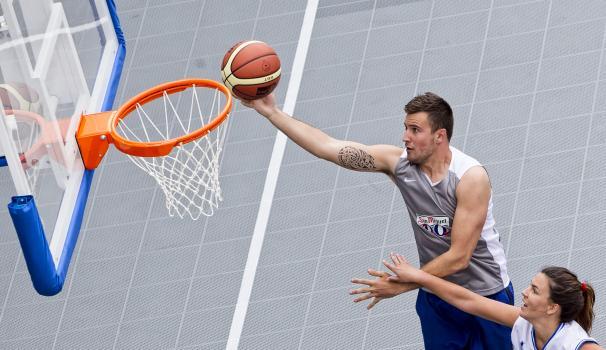
Sports service
Want to represent the URL in college sports tournaments? You can find a wide range of possibilities for both individual and team sports. To be a student of Blanquerna, you will have a discount at the Can Caralleu and La Salle Sport & Fitness sports complexes.

Personal Guidance Service (SOP)
If you are in a difficult situation in the academic, personal or social field, you can request, free of charge, the personalized attention of the SOP. This is an interdisciplinary team of professionals who will guide you in dealing with the situation.
Faith and Spirituality
In the three Blanquerna faculties, you will find spaces for reflection isolated from the hustle and bustle dedicated to the celebration of the Faith or cultural and religious animation. If you wish, you can also receive personalized attention and information about church life.
Diversity support
At Blanquerna we promote personal development at all levels to people with a diversity of specific needs from a normalizing context that encourages personal autonomy and uniqueness.

Blanquerna Choir
If you like music and want to take part in the concerts of institutional events and festivities, sign up for the Blanquerna Choir. There you will meet new friends and enjoy music.

Student representatives
Each class group must elect a representative to put forward concerns or make proposals to the faculty members and academic management. At the same time, each degree must appoint a delegate and each school a representative on the general URL council.
Student Council
Contact between students and the university is constant and is channeled through the Student Council, the body that collects proposals and requests from students and facilitates university life.

Language support service
Are you studying a foreign language and want to improve your level? Do it at your own pace in the language self-learning classroom. This service offers various teaching resources and materials to practice the language.

Anti-harassment Point
We’re here to listen! Have you experienced or witnessed any situation of harassment? Do you have any questions about Blanquerna’s equality policy? Would you like to make a proposal or suggestion regarding gender issues? Use this Anti-harassment Point: write to us through the channels you’ll find at the bottom of this page.
Faculty
Rafel Donat Roca, PhD. Physiotherapist with expertise in neuromusculoskeletal Physiotherapy. PhD in elearning and Knowledge Management from URV. Professor of Physiotherapy studies at UVIC-UCC Campus UManresa. Member of the GRIPFET Research Group at the School of Health Sciences of UManresa. Free Exercise at COM Medical Center for Manresa and the surrounding district.